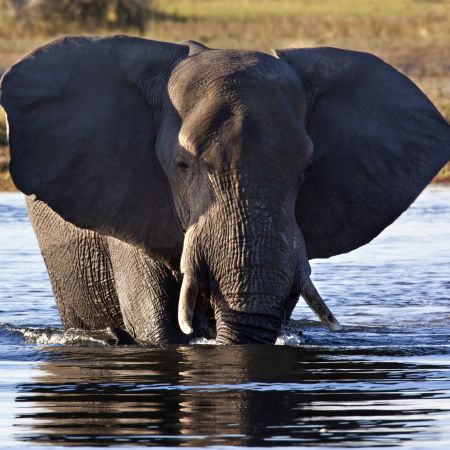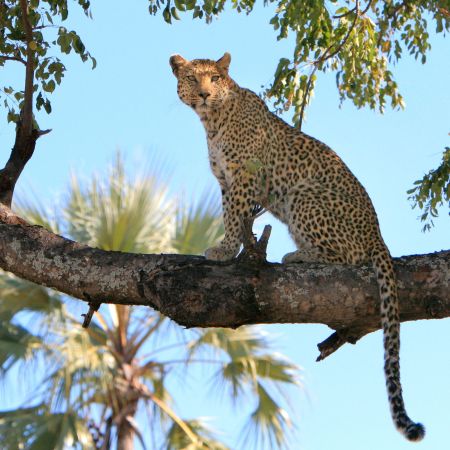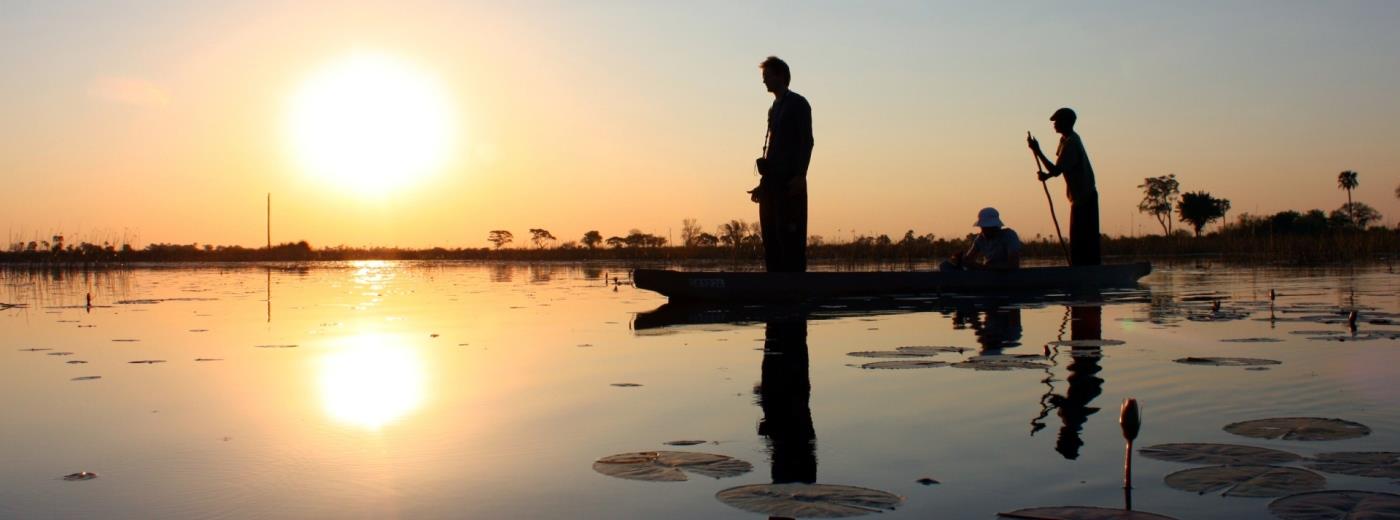What to Expect from a Safari in Botswana
Even though different days bring different experiences, safaris in Botswana generally follow a standard pattern which will be consistent throughout your safari holiday. Typically, a day on safari in Botswana includes 2 major activities per day - one which begins early in the morning and the second which occurs in the mid-to-late afternoon and continues until dark or sometimes up until 2 hours after sunset.
 Your day will start with a wake up call around 5 am (depending on when you travel), with tea/coffee and a morning light snack. The mornings are the best opportunity to see game interactions and some of the nocturnal animals are still active. The game activity usually lasts up to 3-4 hours depending on what you see along the way. The safari vehicles tend to be open 4x4 Land Rovers, which offers superb game viewing opportunites, but the roads are bumpy, so the drives can also be quite exhausting. All game drives are carried out by professional guides.
Your day will start with a wake up call around 5 am (depending on when you travel), with tea/coffee and a morning light snack. The mornings are the best opportunity to see game interactions and some of the nocturnal animals are still active. The game activity usually lasts up to 3-4 hours depending on what you see along the way. The safari vehicles tend to be open 4x4 Land Rovers, which offers superb game viewing opportunites, but the roads are bumpy, so the drives can also be quite exhausting. All game drives are carried out by professional guides.
Morning activities are usually over by late morning and guests return to camp for a full breakfast/brunch. The next few hours are spent relaxing, as wildlife activity over the midday and early afternoon period is usually very limited. You can even catch up on a few hours sleep to recover from the early morning wake up call!
At around 3.30 pm, the evening's activities start, with an afternoon tea and light snacks. The game activity starts before sunset, providing you with another opportunity to see more game in the daylight.
You will then return to the camp before dark and sit around the fire enjoying a drink while waiting for dinner to be served. Drinks after dinner back around the fire are usually offered, but most people find they are too tired from all the fresh air and are in bed by 10 pm!
You will enjoy a wide variety of meals during your safari stay, and all camps attempt to include an 'African' flavour in their menus. Many camps and lodges are booked on a fully inclusive basis, but it is important to note that with respect to drinks, this is based on local beverages and not premium brands. If you have any specific dietary requirements, please let your consultant at Travel Butlers know when you confirm your booking, and where possible your dietary requirements will be met.
 In terms of your accommodation, this can vary from safari tents to chalets/cottages, depending on your itinerary. Most rooms will have twin beds, which are either arranged separately or pushed together - but many camps have mattress converters which can create king/queen size beds.
In terms of your accommodation, this can vary from safari tents to chalets/cottages, depending on your itinerary. Most rooms will have twin beds, which are either arranged separately or pushed together - but many camps have mattress converters which can create king/queen size beds.
Air transfers between camps are generally by a light 5 seater aircraft (Cessna 206) due to remote areas visited and distances travelled. The air transfer time takes an average of 20 minutes to one hour 20 minutes, depending on your itinerary. The flight departure times and drop off times are only scheduled by the air charter companies the day prior, therefore exact travel times cannot be advised in advance. However, most air transfers are scheduled between activities to to suit your international flight arrival/departure times. Please note that the aircraft might stop up to 3 times before reaching its final destination.
Because of the size of the aircraft, they have VERY strict luggage restrictions - normally 15 kg per person plus 5 kg for hand luggage, and your luggage for the aircraft hold must be a soft-sided bag, to enable the luggage to be 'squeezed' into the small space. Hard Samsonite cases are not really welcome!
It is of particular importance that you advise your Travel Butlers sales consultant if one of your party weighs more than 100 kg as this information needs to be passed onto the light aircraft company for safety and logistical reasons. There may be additional charges levied, depending on the policy of the individual charter company.
In addition, your itinerary may also include road, boat and mokoro transfers. Some transfers will also include drives through wildlife areas in open safari vehicles, and depending on the time of year these can be quite exciting as you may need to cross rivers - and there may not be a bridge!

